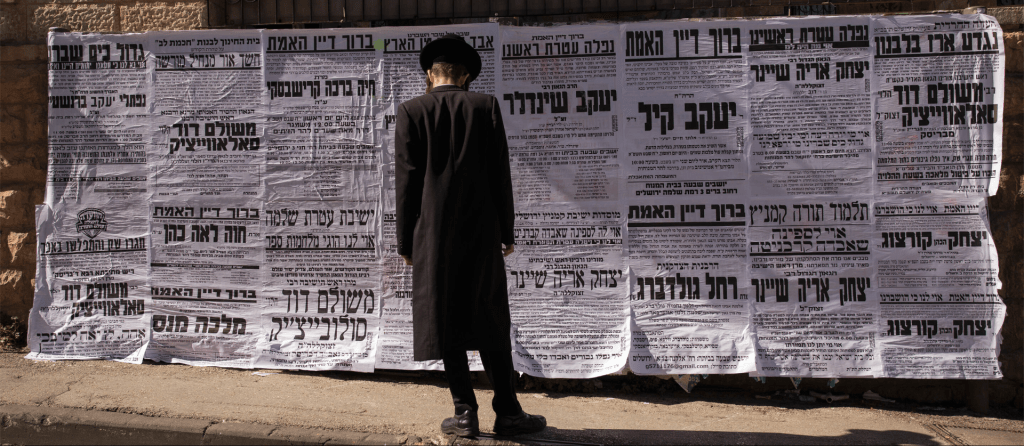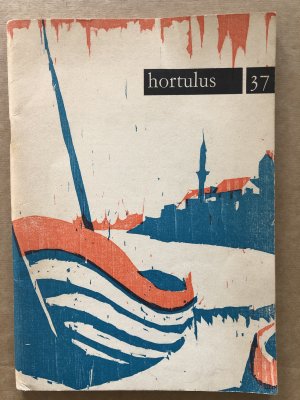Category Archives: Uncategorized
MONDAY 01/22, 5pm: Zalman Rothschild on Hasidic Communities and Secularism
Please join us on Monday, 01/15 at 5pm in Swift 201 for a presentation by:
Zalman Rothschild
Bigelow Teaching Fellow, University of Chicago Law School
 “Multiculturalism and the Right of Exit”
“Multiculturalism and the Right of Exit”
This article argues that as important as it is to preserve the distinctive identities of insular religious communities, it is equally if not more important to ensure that the participants that make up such communities have a meaningful ability to exit from them should they wish to. The article spotlights several concrete impediments to the “right of exit” in one large insular religious community, the Hasidic community in New York. It lays out not only how internal communal practices—including and most notably the lack of secular education— hamper members’ ability to exit but also how the state and courts contribute to its curtailment.
The paper, to be read in advance of the workshop, is available here (password: exit): rothschild-multiculturalism and the right of exit
MONDAY 11/27, 5pm: Kirsten Collins on Judaism and Virginity in Foucault
Please join us on Monday, 11/27, in Swift 201 for a presentation by:
Kirsten Collins
PhD Candidate, University of Chicago Divinity School
“The Chastity of Critique: Law, Biopolitics, and Biblical Hermeneutics in Confessions of the Flesh”

Why does Foucault drop the idea of race and turn toward religion in his work on the foundations of the modern state and subject? Drawing “Society Must be Defended” into conversation with Confessions of the Flesh and archival sources, I show how the hermeneutic of the self that Foucault finds in early Christian texts on virginity is premised on a hermeneutics of the text—specifically, a supersessionist figuration of Judaism as a religion of flesh and law. Drawing on J. Kameron Carter among others, I argue that Foucault finds, in his Christian sources, a structure of critique critical to both the maintenance of the state and resistance, and that examining the place of Judaism in Confessions of the Flesh can allow us to trace production of race from religion, and the limits of the critique that we depend on to recognize it.
The paper, to be read in advance of the workshop, can be found here: collins-chastity of critique-JSW-1
Monday, 11/13, 5pm: Seth Joachim, “Ethical Icarus”
Please join us on Monday, 11/13/2023, at 5pm in Swift 201 for a presentation by:
Seth Joachim
MA, University of Chicago Divinity School
“Ethical Icarus? Levinas Through the Eyes of Teachers”

At first glance, Emmanuel Levinas’s ethics may appear superficially incoherent with human nature. Even as an idealized account of how humans ought to act, the great demand of the Other in Levinas’s ethics would seem to suggest that it would be impossible to ignore the suffering of others. And yet, everyday anecdotal experience demonstrates the ease with which people walk past the basic call to help from others on the street. Another reading might suggest that the way gazes are averted from those in pain suggests just how earnestly individuals attempt to avoid the exact relation to which Levinas’s ethics refers. In contrast, teachers are an ideal case to demonstrate how certain individuals choose to commit the support of others. Through teachers as a test case, this paper asserts the continued relevance of Levinas’s ethics while also suggesting the role of rational choices to impact one’s engagement with others.
The paper, to be read in advance of the workshop, can be found here: Joachim (password: levinas)
Monday, 10/30/2023, 5pm: Raphael Magarik, “Paradise Circumcised: How Milton Became Secular”
Monday 10/16/2023: Ranana Dine on Photographic Representation of Jewish Death
Link

Photograph by Dan Balilty for “How Many Funerals Will Come Out of This One,” in The New York Times, February 17th, 2021.
Ranana Dine
PhD Candidate, University of Chicago Divinity School
“Capturing Corpses: The Advent of Photography and Depicting Jewish Death”
Photography and death have had a significant relation ever since the invention of the technology in the mid-19th century. Post-mortem photography was used to construct the “good death” for Christians in the Victorian era and served as a tool for memory. Within Jewish history, however, photography of the dead has mostly meant to signify Jewish suffering. In some cases the act of photographing the Jewish dead body itself has been a form of violence, working to construct the Jewish “bad death.” Although death photography serves a purpose – it can inform the viewer of something significant and even incite moral outrage and action – we should ask what story these photographs construct. Photography of Jewish corpses often tell a narrow story of a bad death or even create that bad death itself. We should consider turning to other images of Jewish death that can tell a more complete story of relationality,community, and care in the face of death.
Precirculated paper: Dine
MONDAY, 5/22/2023: Rachel Brooke Katz on a Medieval Hebrew Ars Memorativa
Please join the Jewish Studies Workshop for a presentation by:

ROMBERCH MEMORY, 1553. Woodcut illustrating the method of loci from Johannes Romberch’s ‘Congestorium Artificiose Memoriae,’ Venice, 1553.
Rachel Brooke Katz
PhD Student, History of Judaism, The University of Chicago Divinity School
Shema as Memory Palace:
A Medieval Hebrew Ars Memorativa
Respondent: Aslan Cohen Mizrahi (PhD Student, The University of Chicago Divinity School)
Monday, May 22, 2023 from 5:00 to 6:30 pm Central
on Zoom
Rachel’s paper, to be read in advance of the session, is available for download below. The password to the document and the information for joining the Zoom session will be emailed to the Jewish Studies Workshop email listserv. If you would like to be added to this listserv, please click the “Subscribe” tab above.
Pre-circulated paper: Katz
MONDAY, 5/15/2023: Elena Hoffenberg on Jews in Interwar Poland
Please join the Jewish Studies Workshop for a presentation by:

Unemployed seamstress at her sewing machine, Bialystok, Poland, 1926. Photograph by Alter Kacyzne. (RG 1270, YIVO Archives)
Elena Hoffenberg
PhD Student, History, University of Chicago
Making a Living and Making a Life:
The Jews of Poland between the Two World Wars
Monday, May 15, 2023 from 5:00 to 6:30 pm
Swift Hall 200
Elena’s paper, to be read in advance of the session, is available for download below. The password to the document will be emailed to the Jewish Studies Workshop email listserv. If you would like to be added to this listserv, please click the “Subscribe” tab above.
Pre-circulated paper: Hoffenberg-JStW-Prospectus (bibliography)
MONDAY, 5/8/2023: The Book of Qohelet: a Conversation
Please join the Jewish Studies Workshop and Hebrew Bible and Early Jewish Reception Workshop for:
The Book of Qohelet: a Conversation
with
Simeon Chavel (Associate Professor of Hebrew Bible, University Chicago Divinity School)
and
James Robinson (Dean and Professor of History of Judaism, Islamic Studies, and the History of Religions, University of Chicago Divinity School)
Monday, May 8, 2023 from 5:00 to 6:30 pm
Swift Hall 208
In advance of the session, participants are invited to read Qohelet Chapter 1-3 and 11-12.
TUESDAY, 5/2/2023 in Swift 201: Na’ama Rokem on Translation between German and Hebrew
Please join the Jewish Studies Workshop for a presentation by:

Cover of Hortulus 37 1959. Booklooker.de
Na’ama Rokem
Associate Professor of Modern Hebrew Literature & Comparative Literature, University of Chicago
Hortulus 37, 1959: Translation, Self Translation, and Collaborative Translation in an Anthology of New Poetry from Israel
Respondent: Rachel Galvin (Associate Professor, English, University of Chicago)
Tuesday, May 2, 2023 from 5:00 to 6:30 pm
Swift Hall 201
Na’ama’s paper, to be read in advance of the session, is available for download below. The password to the document will be emailed to the Jewish Studies Workshop email listserv. If you would like to be added to this listserv, please click the “Subscribe” tab above.
Pre-circulated paper: Rokem